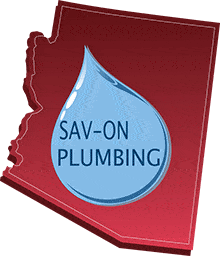When you aren’t getting enough hot water for your household, a water heater repair/replacement may be in order, but there are some things you can do to troubleshoot the problem:
Adjust the temperature on your water heater. Keep it at 120 degrees Fahrenheit to prevent scalding and inhibit mold and bacteria growth, and reduce utility costs. If it’s already at 120 degrees, you can nudge it up a bit for a more comfortable water temperature.
Add an insulation sleeve onto your pipes and over your water heater tank. When temperatures take a sudden dip, your water heater has to work a little harder to sustain your set temperature. Insulating pipes and the tank itself can help your tank maintain its temperature without having it work harder.
The water supply line might be cracked or broken. The plastic tube that supplies water to the tank usually fills it from the bottom. When the fill tube is split, however, the cold water can dump into the top of the tank. At the top is where the water exits to the taps, and when cold water mixes there, it decreases the water temperature to the taps, regardless of how much hot water is already in the tank.
Check with your utility company. If you’re on a special cost-saving program where your utilities are shut off for a specific time of the day, you may want to adjust the timing, or even request a different program.
If you still aren’t getting enough hot water to meet your demand, you may want to consider a water heater replacement. Here are some considerations:
Size: You may need a bigger tank. Allow 12 gallons per person, but you’ll also want to consider what else may be operating during peak times, such as a dishwasher or clothes washer. Try this online calculator to more accurately gauge your use
Energy Type: Many people elect to stay with what they know, but there are more energy options than just electric or natural gas. In general, natural gas is less expensive, but it depends on your local utility costs. Greener energy options are more viable than ever before. Solar heaters can be a great choice in the Southwest due to the high number of sunny days and shorter winters. They’re more expensive to purchase, but the operating costs are lower, letting you recoup the difference in your energy bills. Geothermal is another option, using energy from the earth, but like-solar powered tanks, the initial cost may be high, while operating costs remain low. Propane water heater tanks are the longest lasting (up to 20 years) because they’re built with longer lasting heating elements. A special note about propane is that it is usually locally sourced energy, and can be stored for long periods of time. That allows people to buy when prices are lower, and stockpile the tanks for later use.
Sav-On Plumbing can help you with water heater repair/replacement. Give us a call for your options today.
